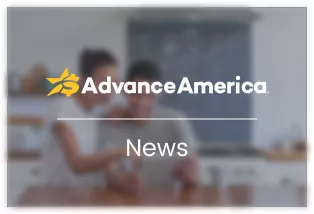
Government Emails Reveal Illegal Crackdown
Top government officials at the Federal Deposit Insurance Corporate (FDIC) and Office of the Comptroller of the Currency (OCC), with support from the Department of Justice, illegally pressured banks to cut all ties with payday lenders like Advance America. New evidence shows these officials were motivated by personal bias, scorn for our industry and its services, and contempt for our millions of customers.
These findings were revealed in documents included in a motion for summary judgement in our lawsuit against these regulators for their roles in masterminding a rogue regulatory campaign called Operation Choke Point.
For five years, Advance America has felt the effects of Operation Choke Point, losing more than 20 banking relationships and impacting our day-to-day operations. We knew – from anecdotal accounts from bank officials upon terminating our accounts and from Congressional investigations – that the prudential bank regulators had mounted this clandestine crusade as a concerted effort to force banks to stop doing business with our company and numerous other “disfavored” but legal industries.
Officials at the highest levels of these regulators – particularly the FDIC – had ordered and approved these backroom dealings. And they did so not because of a need or desire to combat illegal activity as they self-righteously claimed under oath before Congress, but rather were motivated by their personal ideological objections to short-term lending.
The newly released documents accompanying our motion reveal that Operation Choke Point was an ideologically motivated hit job on regulated lenders, executed through strong-arm tactics dictated by a handful of well-placed partisan bureaucrats.
-
In late 2010 or early 2011, the FDIC’s senior Washington officials convened a meeting of all Regional Directors at which a senior FDIC official delivered the following message, direct from the FDIC’s highest leadership in Washington: “if a bank was found to be involved in payday lending, someone was going to be fired.”
-
The FDIC’s Atlanta Regional Director met personally with the chairman of a bank that serviced payday lenders, characterized payday lending as a “dirty business,” and threatened the chairman with potential criminal prosecution if he did not end the relationship. After the bank complied and terminated the account, the Regional Director sought to cover the FDIC’s tracks, pressuring the bank to characterize the decision as its own.
-
The Atlanta Regional Director also expressed personal disdain for payday lending and threatened banks working with the industry with further examination, writing to a senior official in Washington, "I literally can not (sic) stand pay day (sic) lending," and “[payday lenders] do not deserve to be in any way associated with banking."
-
The FDIC’s Chicago Regional Director urged his staff to use all “available means, including verbal recommendations” to ensure banks dropped lenders’ accounts. He explained to a bank’s board of directors, “[w]e have generally found that activities related to payday lending are unacceptable for an insured depository institution.”
-
Despite a cautionary warning from legal counsel, a senior official insisted that then-FDIC Chairman Martin Gruenberg's letters to Congress and talking points always mention pornography when discussing payday lenders to convey a "good picture regarding the unsavory nature of the businesses at issue," and to "ultimately help with the messaging on this issue."
-
One lender was told by a banker that to try to do business with a payday lender would place the bank in “regulatory hell,” while an executive at Fifth Third Bank told Advance America that it was terminating our account not because of anything we had done but because there was a “third person” in the room making the decision. Other bank officials indicated receiving similar instructions and regulatory pressure.
Now, more than a year after the government declared an official end to Operation Choke Point, it has not remedied the harms of this insidious program.
None of the bureaucrats responsible for Operation Choke Point have been held accountable, including those still in high-ranking government positions. No steps have been taken to restore our banking operations, to protect Americans’ access to short-term credit. And with the ringleaders still in positions of power, there is little standing in the way of such “Big Brother” activity in the future, whether for the short-term lending industry or any other regulated, legitimate business.
Notice: Information provided in this article is for informational purposes only. Consult your attorney or financial advisor about your financial circumstances.